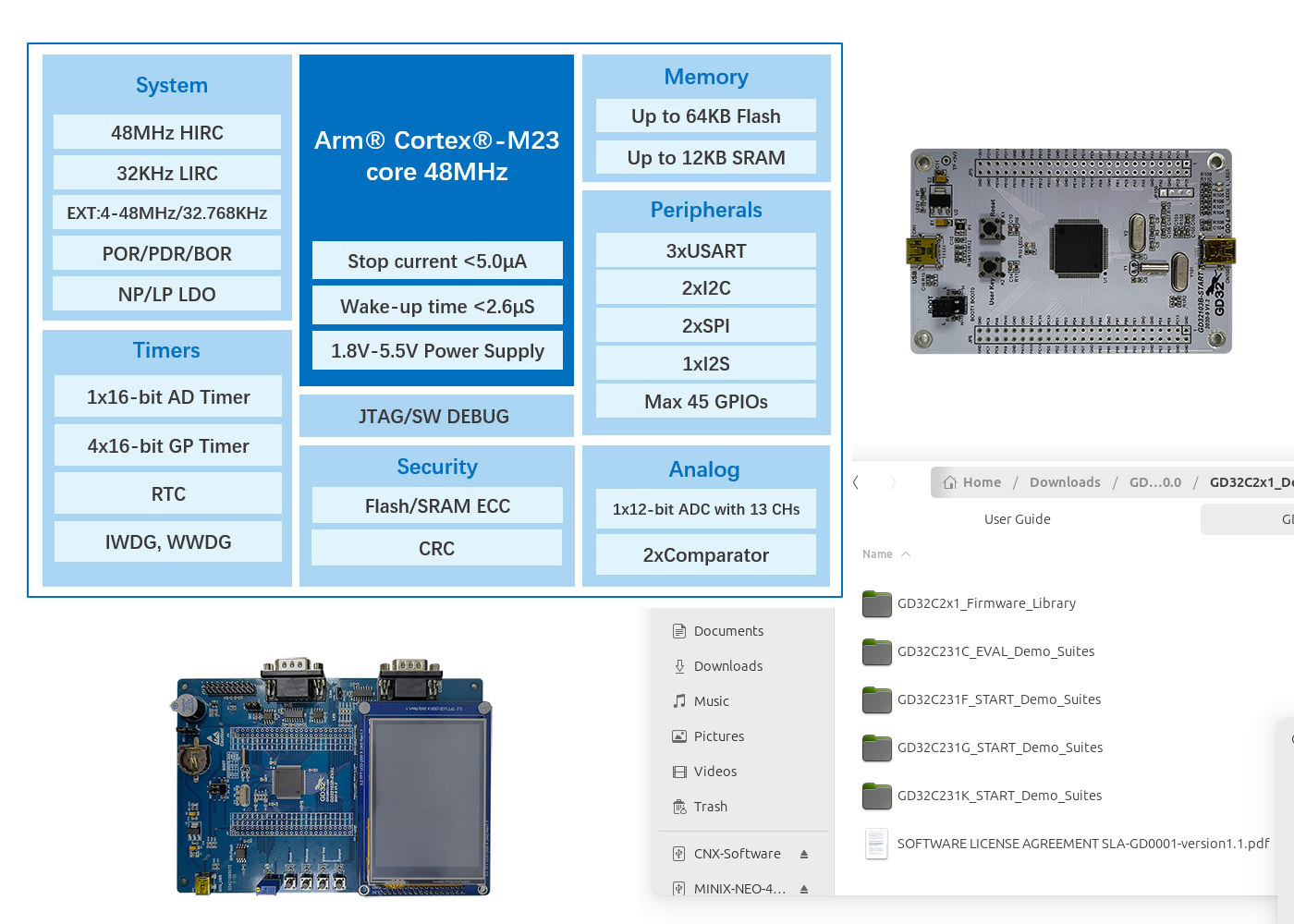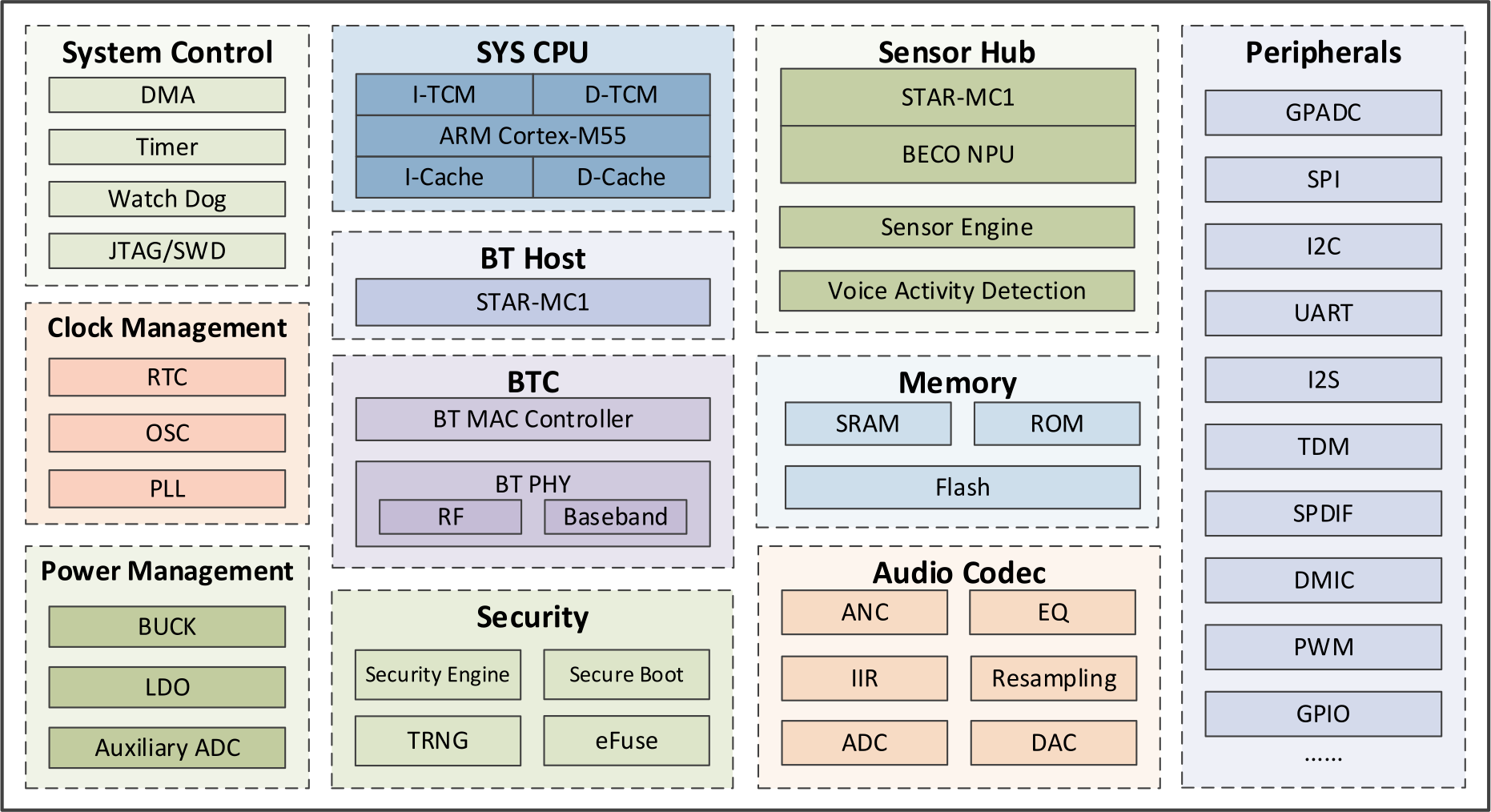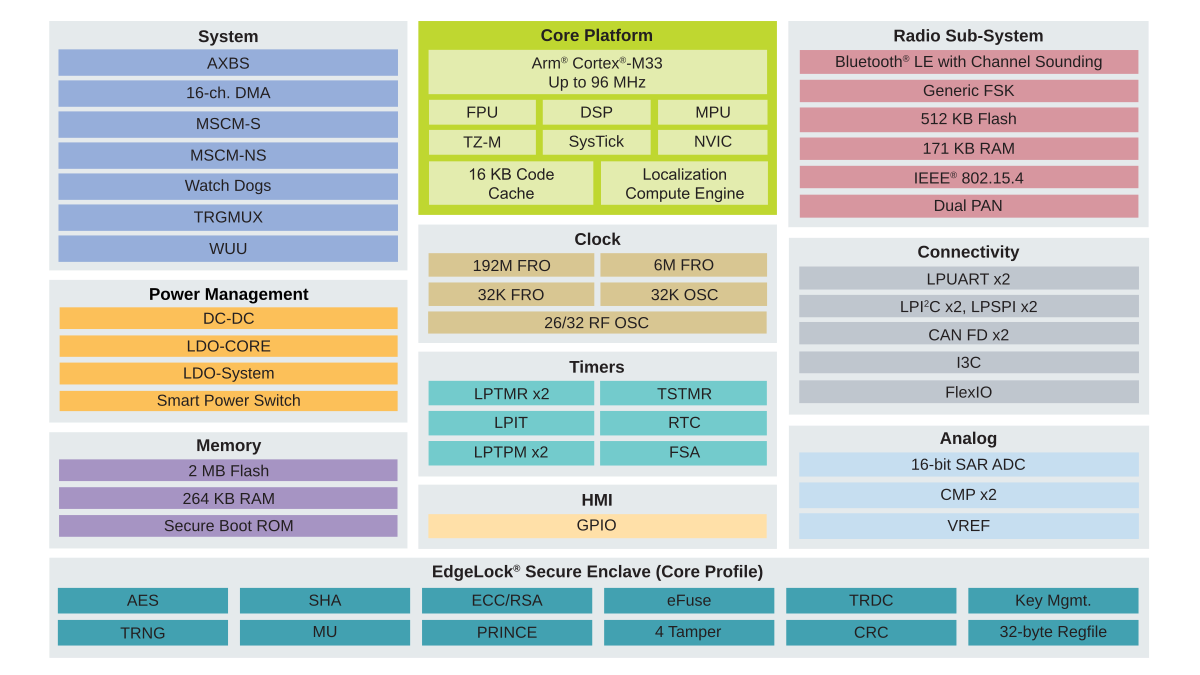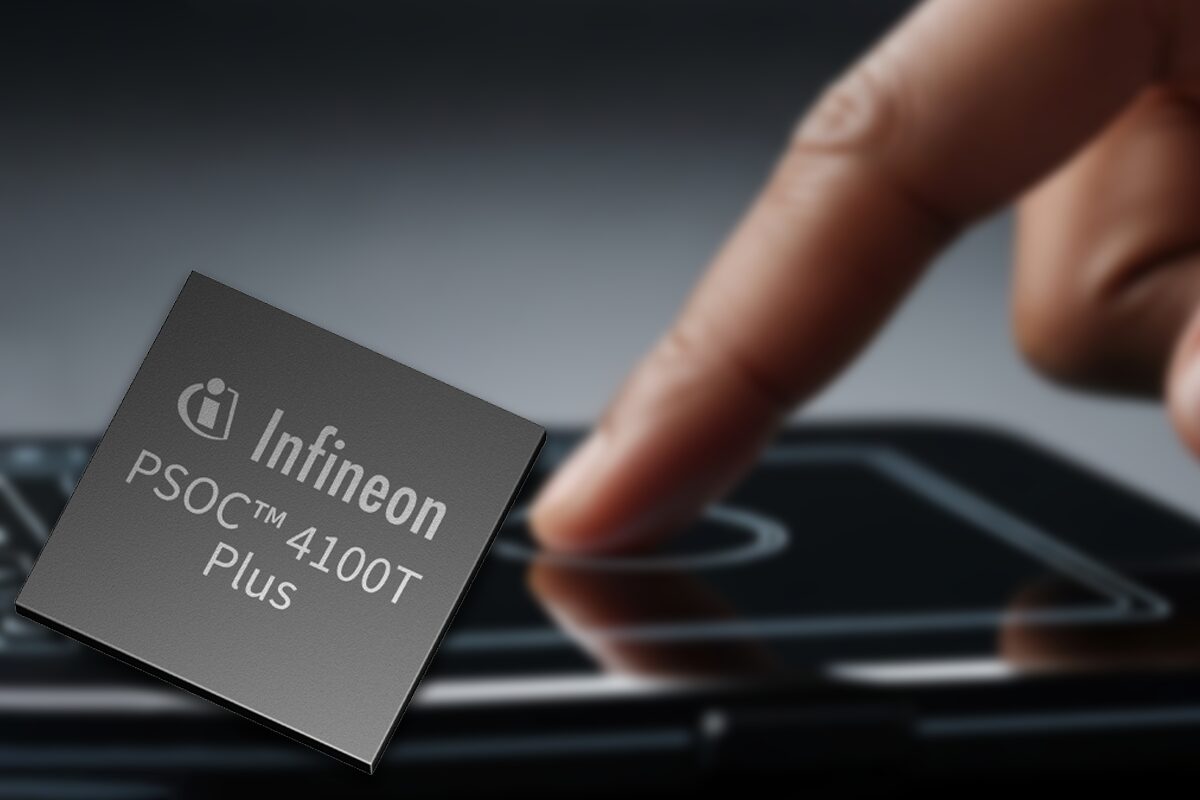GigaDevice GD32C231 entry-level microcontroller is built around a 48 MHz Arm Cortex-M23 core with up to 64KB ECC flash, 12KB ECC SRAM, and is offered in 20-pin to 48-pin packages with up to 45 GPIOs, a range of peripherals, analog inputs, and timers. The company says the GD32C231 series targets cost-effective small home appliances, BMS (Battery Management Systems), small-screen display devices, battery-powered handhelds, industrial auxiliary controls, and automotive aftermarket systems. GigaDevice GD32C231 key features and specifications: Core – Arm Cortex-M23 @ up to 48 MHz Memory – 12KB SRAM with ECC Storage – 32KB or 64KB flash with ECC Audio – 1x I2S Low-speed Peripherals Up to 45x GPIO Up to 3x USART, 2x I2C, 2x SPI Analog 12-bit ADC with 13 channels 2x analog comparators Timers 4x 16-bit general-purpose (GP) timers 16-bit Advanced (AD) timer RTC IWDG, WWDG 24-bit SysTick Misc – CRC module Supply Voltage – 2.3 to […]
Renesas RA2L2 – The first low-power MCU with USB-C Revision 2.4 support
Renesas RA2L2 is the world’s first low-power MCU to support the USB-C Revision 2.4 standard with 15W CC detection, USB FS support. It also offers support for CAN Bus, I3C, and low-power UART. The announcement follows other devices from the Renesas RA series, such as the RA2A2 Arm Cortex-M23 MCU introduced in 2024, and the RA4L1 ultra-low-power MCU unveiled earlier this year with just 168 µA/MHz operation, dual-bank flash, and capacitive touch. The RA2L2 Cortex-M23 microcontroller also embeds up to 128KB of code flash, 16KB SRAM, and 4KB data flash for EEPROM-like storage. It supports a wide 1.6V to 5.5V supply voltage and an industrial-grade -40°C to +125°C temperature range. The MCU also integrates a ±1% high-accuracy on-chip oscillator, multiple timers including 16-bit and 32-bit PWM and low-power asynchronous timers, a 12-bit ADC, a real-time clock, and an internal temperature sensor. It’s available in 32- to 64-pin packages and offers […]
Bestechnic BES2700YP Arm Cortex-M55 Bluetooth Audio SoC targets headphones, earbuds, portable speakers
Bestechnic BES2700YP is an Arm Cortex-M55 Bluetooth Audio SoC designed for Smart earbuds with adaptive ANC, Smart Bluetooth headphones/headsets, ANC hearing-aids, Bluetooth speakers, and other portable audio devices When I wrote about the Ambiq Apollo330 Plus SoC family last week, I realized it was the first time I covered Arm Cortex-M55 microcontrollers with built-in wireless, in that case Bluetooth LE 5.4 and 802.15.4 (Thread/Matter) radios, and that’s how I came across the BES2700YP SoC with a more narrow use cases since it’s made for Smart Bluetooth audio applications. BES Technic BES2700YP key features and specifications: CPU Subsystem – Arm Cortex-M55 core Sensor Hub Subsystem – Arm STAR-MC1 core (improved Arm Cortex-M33 core) with sensor engine, BECO NPU, and VAD (Voice Activity Detection) Memory – 4 MB SRAM shared across the CPU, Bluetooth, and Sensor Hub cores Storage – Flash in package, boot ROM Bluetooth Subsystem Arm STAR-MC1 core (Arm Cortex-M33 […]
ESP32-P4 development board features 3.4-inch or 4-inch round IPS touchscreen display
Waveshare ESP32-P4-WIFI6-Touch-LCD-3.4C and ESP32-P4-WIFI6-Touch-LCD-4C ESP32-P4-based development boards feature a 3.4-inch and a 4-inch round IPS display, respectively, a 10-point capacitive touchscreen, and a wide 170° viewing angle. They also integrate two microphones with echo cancellation for voice AI applications and offer Wi-Fi 6 and Bluetooth 5 (LE) connectivity via an ESP32-C6 module. Designed for AIoT and HMI projects, the boards also include USB ports, a camera connector, a speaker connector, and a microSD card slot. Target applications include Smart Home control panels, voice-controlled interfaces, digital dashboards, indoor environmental monitoring, PC performance monitoring, and other secure IoT and edge computing applications. Waveshare ESP32-P4-WIFI6-Touch-LCD-3.4C/4C specifications Main module – ESP32-P4-Core Module Microcontroller – ESP32-P4NRW32 MCU Dual-core RISC-V microcontroller @ 400 MHz with AI instructions extension and single-precision FPU Single-RISC-V LP (Low-power) MCU core @ up to 40 MHz GPU – 2D Pixel Processing Accelerator (PPA) VPU – H.264 and JPEG codecs support Memory – […]
Ambiq Apollo330 Plus SoC Series Cortex-M55 MCU family offers optional Bluetooth 5.4 LE and 802.15.4 radios
Ambiq Apollo330 Plus SoC Series is a new family of ultra-low-power, sub-threshold Arm Cortex-M55 microcontrollers with optional Bluetooth 5.4 LE and 802.15.4 radios for IoT and Smart Home applications. The Ambiq Apollo330 Plus MCU itself appears to be a cost-down version of the Ambiq Apollo510 general-purpose Cortex-M55 MCU introduced last year, with the removal of display and graphics support, lower RAM and NVM capacities (2MB/2MB vs. 3.75MB/4MB), and fewer I/Os, but with a wider 1.71 to 3.63V voltage supply range. Two other SKUs add wireless: the Apollo330B Plus includes a Bluetooth 5.4 LE radio, and the Apollo330M Plus an extra 802.15.4 radio for Zigbee, Thread, and Matter as a multiprotocol SoC. Ambiq Apollo330 Plus specifications: CPU Core – 32-bit Arm Cortex-M55 @ 96 MHz / 250 MHz (turboSPOT) with Helium technology, Network coprocessor Memory- 2MB SRAM Storage 2MB NVM SDIO v3.0 and eMMC flash controllers Wireless Arm Cortex-M4F network processor […]
NXP MCX W72x Cortex-M33 wireless SoC supports Bluetooth 6.0 with Channel Sounding, Zigbee, Thread and Matter
NXP MCX W72x series Cortex-M33 wireless SoCs support for Bluetooth 6.0 and an 802.15.4 radio for Zigbee, Thread, and Matter. The MCX W72x family also implements Bluetooth Channel Sounding for accurate distance measurements with the help of a Localization Compute Engine (LCE) to reduce latency. It’s the second MCU part of the MCX W wireless family following the MCX W71x MCU, and the new MCX W72x wireless microcontroller is offered with up to 264 KB SRAM, 2MB flash, features a dedicated Cortex-M33 core to handle Bluetooth and 802.15.4 radios, implements an EdgeLock Secure Enclave for security, and integrates plenty a range of I/Os in a 48-pin package. NXP MCX W72x key features and specifications: MCU cores and memory/storage Application core – Arm Cortex-M33 core up to 96 MHz with 2 MB program Flash with ECC, 264 kB SRAM with ECC and parity Networking core – Arm Cortex-M33 core with dedicated […]
Infineon PSoC 4100T Plus multi-sense Arm Cortex-M0+ MCU supports ML-based liquid level sensing, wake-on-touch with 8µA deep sleep mode
Infineon PSoC 4100T Plus is a new low-power Arm Cortex-M0+ MCU designed for battery-powered or low-power embedded systems that require advanced capacitive touch and proximity sensing. The microcontroller comes with 128 KB of flash, 32 KB of SRAM, and an 8 KB ROM. One of the most interesting features of this MCU is Infineon’s fifth-generation CapSense MSCLP technology, which enables high-resolution, low-power capacitive sensing even in deep sleep mode (as low as 8 µA). Its capacitive sensing uses both self and mutual capacitance methods, supported by analog front-end filtering, sigma-delta modulation, and digital filtering techniques, delivering a signal-to-noise ratio greater than 5:1 for accurate detection. The MCU supports gesture detection, human-machine interfaces (HMI), and smart sensing applications, making it ideal for wearables, consumer devices, and IoT systems. Additional features include a 12-bit 1-MSps SAR ADC, six TCPWM blocks, smart I/O with programmable logic functions, multiple UART/I2C/SPI interfaces, and up to […]
Silicon Labs SiXG301 and SiXG302 “Series 3” wireless SoCs are built for line-powered and battery-powered IoT applications
Silicon Labs has just introduced the first 22nm Series 3 SoCs with the SiXG301 and SiXG302 Arm Cortex-M33 multiprotocol wireless SoCs designed for line-powered and battery-powered IoT devices, respectively. The SiXG301 is offered with 4MB flash and 512 KB SRAM, embeds an LED pre-driver for advanced LED smart lighting and smart home products, and supports 2.4 GHz wireless protocols such as Bluetooth, Zigbee, and Thread with support for Matter. The upcoming SiXG302 Bluetooth and Matter SoC offers an ultra-low-power consumption using only 15 µA/MHz active current, or 30% lower than competitive devices in its class, and as such is ideal for battery-powered wireless sensors and actuators. We’ll be focusing on the SiMG301 multi-protocol SoC and SiBG301 Bluetooth LE SoC in this article since the details are sparse for the SiXG302 parts (SiMG302 and SiBG302). Silicon Labs SiMG301 / SiBG301 specifications: MCU Core – 32-bit Arm Cortex-M33 with DSP instructions and […]









